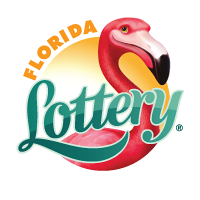
Mahjong or mah-jongg is a tile-based game that was developed in the 19th century in China and has spread throughout the world since the early 20th century. It is commonly played by four players. The game and its regional variants are widely played throughout East and Southeast Asia and have also become popular in Western countries. The game has also been adapted into a widespread online entertainment. Similar to the Western card game rummy, Mahjong is a game of skill, strategy, and luck. To distinguish it from mahjong solitaire, it is sometimes referred to as mahjong rummy.

The Subaru Forester is a compact crossover SUV that has been manufactured by Subaru since 1997. The Forester shares its platform with the Impreza.

Volleyball is a team sport in which two teams of six players are separated by a net. Each team tries to score points by grounding a ball on the other team's court under organized rules. It has been a part of the official program of the Summer Olympic Games since Tokyo 1964. Beach volleyball was introduced to the programme at the Atlanta 1996. The adapted version of volleyball at the Summer Paralympic Games is sitting volleyball.

Connect Four is a two-player connection board game, in which the players choose a color and then take turns dropping colored tokens into a seven-column, six-row vertically suspended grid. The pieces fall straight down, occupying the lowest available space within the column. The objective of the game is to be the first to form a horizontal, vertical, or diagonal line of four of one's own tokens. Connect Four is a solved game. The first player can always win by playing the right moves.

Mega Millions is an American multi-jurisdictional lottery game; as of January 30, 2020, it is offered in 45 states, the District of Columbia, and the U.S. Virgin Islands. The first (The Big Game) Mega Millions drawing was in 2002; see below. What is now Mega Millions initially was offered in six states; the logo for all versions of the game following the retirement of The Big Game name featured a gold-colored ball with six stars to represent the game's initial membership, although some lotteries insert their respective logo in the ball.
Collapse! is a series of tile-matching puzzle video games by GameHouse, a software company in Seattle, Washington. In 2007, Super Collapse! 3 became the first game to win the Game of the Year at the inaugural Zeebys. The series has been discontinued since 2015 due to RealNetworks shutting down its internal games studio.
Powerball is an American lottery game offered by 45 states, the District of Columbia, Puerto Rico and the U.S. Virgin Islands. It is coordinated by the Multi-State Lottery Association (MUSL), a nonprofit organization formed by an agreement with lobbyists and US corporations. From its inaugural drawing on April 19, 1992, until August 21, 2021, Powerball drawings were held twice a week ; a third weekly drawing was added on August 23, 2021. Drawings are held every Monday, Wednesday and Saturday evening at 10:59 p.m. Eastern Time, at Florida Lottery headquarters in Tallahassee.

The Florida Lottery is a government-run organization in the state of Florida, United States. With numerous on-line and scratch-off games available, players have a wide variety of prize levels to choose from. Since it began, the Florida Lottery has continued to add variety to its portfolio of games. The Lottery has experimented with higher price points, enhanced traditional games, and introduced seasonal promotional games. In 2012, Florida was the third-ranked state in yearly lottery revenue with $4.45 billion; revenue passed $5 billion in fiscal year 2013. Florida passed the legislation to enact the lottery in 1986 by a two to one ratio. The new lottery was spearheaded by Gov. Bob Martinez and the Florida legislature with the mission of maximizing revenues for the enhancement of public education in Florida. The lottery was founded on the basis that it would provide the people of Florida the opportunity to benefit from additional revenues while providing the highest quality games available. The lottery's first game, MILLIONAIRE was a $1 scratch-off that was immensely popular. Within 17 days, the scratch-off game had paid back the entire $15.5 million to the state's general fund. As of 2022, Florida offers eleven (11) terminal-generated games: Cash4Life, Mega Millions, Powerball, Florida Lotto, Pick 2, Pick 3, Pick 4, Pick 5, Fantasy 5, Cash Pop, and Jackpot Triple Play.
Australian railway signalling varies between the states of Australia, because each railway system was established under the different colonial governments with separate legislation. Just as with the notorious variation of Australian rail gauges, there are differing signal systems. The systems in New South Wales generally follow British precedents, although American influence has increased somewhat since the 1990s. Victoria uses American-style speed signalling on its main lines. That can cause confusion where the systems meet.
Lotteries in Australia include various lottery related products licensed by the Lott and Lotterywest Australian lottery companies. Lotteries operators are licensed at a state or territory level, and include both state government-owned, not-for-profit and private sector companies. Most major Lotteries have now moved into the online marketplace.
Deal or No Deal was an Australian game show that aired on the Seven Network from 13 July 2003 to 4 October 2013. It was the first international version of the game show, after the original Miljoenenjacht from the Netherlands. It was the first of the versions to use the Deal or No Deal name.

The Volkswagen Golf Plus is a two-row compact MPV (C-segment) that was manufactured by Volkswagen between 2004 and 2014 under the Golf nameplate. Developed as a more practical alternative to the Golf hatchback and positioned below the three-row Touran, the vehicle is based on the Golf Mk5, riding on the PQ35 platform. A crossover-styled version was launched as the Volkswagen CrossGolf in 2006. Throughout its life cycle, it has been sold alongside the Golf Mk5 and Golf Mk6.
There were various games and applications available in Windows Live Messenger that could be accessed via the conversation window by clicking the games icon and challenging your "buddy".
The Chevrolet Kingswood was a 4-door station wagon produced by Chevrolet in 1959 and 1960, and again from 1969 to 1972 built on the GM B Body platform.

The Holden Commodore (VY) is an executive car that was produced by Holden from 2002 to 2004. It was the third iteration of the third generation of the Commodore. Its range included the luxury variants, Holden Berlina (VY) and Holden Calais (VY); commercial versions were called the Holden One Tonner (VY), Holden Ute (VY), and Holden Crewman (VY). In 2003, the range also saw the introduction of the first Commodore-based all-wheel drive variants, including the Holden Adventra (VY) wagon.

The Holden Commodore (VX) is an executive car that was produced by Holden from 2000 to 2002. It was the second iteration of the third generation of the Commodore. Its range included the luxury variants, Holden Berlina (VX) and Holden Calais (VX), and it formed the basis for a new generation Holden Ute (VU) coupé utility and Holden Monaro (V2) coupé.

Planet Puzzle League, known as Puzzle League DS in Europe, and as Panel de Pon DS in Japan, is a video game for the Nintendo DS handheld video game console in the Puzzle League/Panel de Pon visual matching puzzle game series. In North America, Planet Puzzle League is part of the Touch! Generations brand; in Japan, Panel de Pon DS is marketed in the general Touch! brand. The publisher for the game is Nintendo, and the developer is Nintendo second-party developer Intelligent Systems, creator of the original Panel de Pon and its cult classic English-language adaptation Tetris Attack. The game was released in Japan on April 26, 2007 in North America on June 4, 2007, and in Europe on June 29, 2007.

The Connecticut Lottery Corporation, also called the CT Lottery, is the official lottery in Connecticut. It was created in 1971 by then-Gov. Thomas Meskill, who signed Public Act No. 865. The first tickets were sold on February 15, 1972. The Connecticut Lottery offers several in-house drawing games; Connecticut also participates in Mega Millions and Powerball; each are played in 44 states, the District of Columbia, and the U.S. Virgin Islands.
The Arizona Lottery is a state agency of Arizona in the southwest United States. It is a member of the Multi-State Lottery Association (MUSL). Lottery draw games include Mega Millions, Powerball, The Pick, Fantasy 5, Pick 3, and Triple Twist. A variety of instant scratch tickets, or Scratchers, are also offered.
The Michigan Lottery offers numerous on-line and scratch-off games, giving players a wide variety of prize possibilities. Initiated under the authority of Public Act 239 in 1972, the games collect funds to support Michigan’s public school system.











